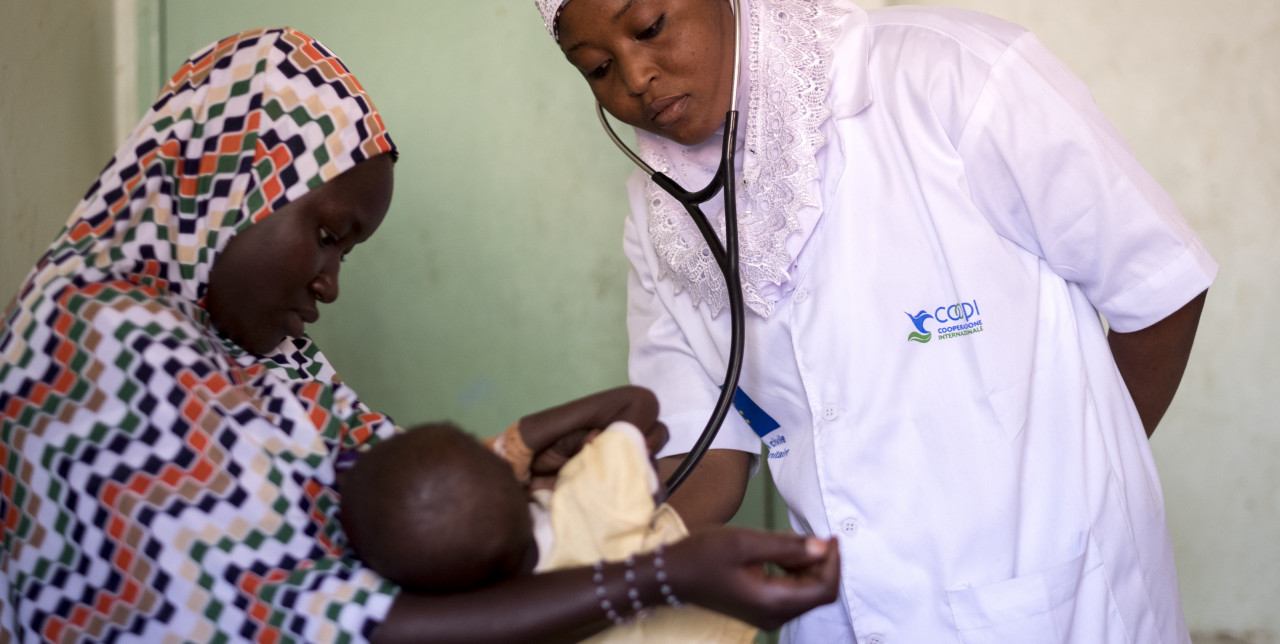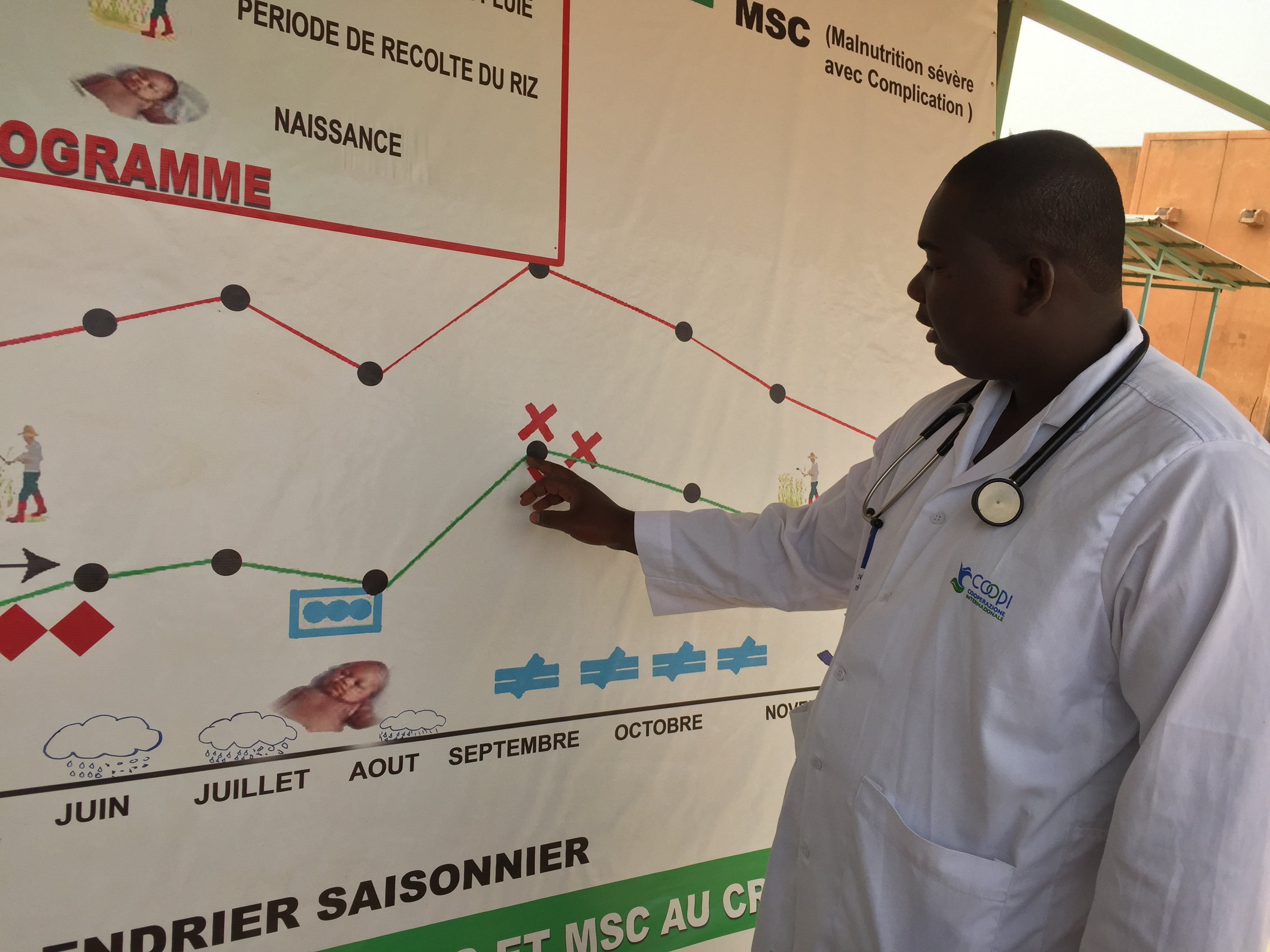26-04-2022 | di COOPI
Niger. Improved responses to nutritional emergencies
Niger, one among the biggest countries in the Sahel region, is confronted with several risks and frequently faces episodes of drought, famine, locust invasions, floods, cholera and meningitis epidemics, political instability and violent conflicts. These risks are sometimes overlapping and have a general impact on food and nutrition insecurity.
Despite the government's efforts with regard to crisis and disaster prevention policy through the Early Warning System (EWS), disasters and nutritional crises remain a major problem in the country. For this reason, the European Commission's Directorate-General for Civil Protection and Humanitarian Aid Operations (ECHO) has funded the 'Improved Response to Nutritional Emergencies programme', led by the NGO Concern, in consortium with COOPI – Cooperazione Internazionale and Action Contre la Faim. It is a multi-sectoral programme of Early Warning Early Action (EWEA), Protocol for the Integrated Management of Malnutrition, Community Based Management of Acute Malnutrition (CMAM Surge) and Protection, which is based on three pillars: response, preparedness and prevention of malnutrition. The programme is implemented by Concern in the Tahoua region, by Action Contre la Faim in the Maradi region and by COOPI in the Tillabéry region.
In this project, COOPI supports the National Directorate of Nutrition on the Health/Nutrition component through the CMAM Surge approach.
What we do in support of health districts
Through the innovative CMAM Surge (Community-based Management of Acute Malnutrition) approach, the project increases the resilience of the healthcare system, so that it is constantly able to provide quality services for the management of acute malnutrition, particularly during periods of high frequency, when the ability to save lives must be a priority. This approach prepares the health system through a two-step process divided into eight interconnected and interdependent steps, with tools to respond effectively to peaks of cases and overloading of the healthcare system. These steps include the real-time analysis, planning, monitoring and action phases, together with limit-value monitoring, health director panel monitoring, scale-up and scale-down phases (trigger actions), reflection, review and periodic evaluation.
In total:
- 41 integrated healthcare centres (including 36 in the Tillabery health district and 5 in Ayorou) are implementing the CMAM Surge approach;
- 84 health workers in the Tillabery and Ayorou districts and 14 district doctors in the Tillabery region have benefited from COOPI-supported training courses to implement CMAM Surge activities;
- 82 nutrition focal points and members of the Surge Pool of Trainers were trained on CMAM Surge tools;
- In the Tillabéri health district, 302,823 people are beneficiaries of the project (148,015 men and 154,808 women), including 125,755 children aged 0-5 years;
- In the Ayorou health district, 75,962 people (37,176 men and 38,786 women), including 1,524 children aged 0-5 years, are benefiting from this project.
Photo credit: Francesco Bellina




 Niger
Niger
